If you’re searching for the perfect ERP to take your business to the next level, you’ve probably come across the debate: Zoho vs. Odoo. Both platforms are packed with features—covering everything from CRM to ERP and beyond—designed to help you easily manage and grow your business.
But here’s the challenge: deciding between Zoho and Odoo isn’t always simple. Each offers unique strengths that suit different business needs, budgets, and industries. So, how do you choose the right one for you?
In this blog, we’ll break it all down for you—exploring their features, flexibility, pricing, and more. Whether you’re a startup or an enterprise, stick around to discover which ERP could be your ultimate game-changer!
Table of Contents
Understanding Each Contender of Our Zoho vs Odoo Showdown
Before exploring the details of Zoho vs Odoo, it’s crucial to know the overview of each ERP solution. Both platforms cater to businesses of all sizes, offering a wide range of tools to manage everything from customer relationships to core operations.
Here’s a closer look at each:
Zoho – Cloud based ERP Solutions
Zoho offers a versatile suite with 45+ cloud based applications to simplify business management. With tools for CRM, accounting, project management, and more, it offers an all-in-one solution that’s especially popular among small to medium-sized businesses. Its user-friendly interface, affordable pricing, and seamless integration make it a go-to choice for teams looking to streamline their workflows without breaking the bank.
Read more in our Zoho One Review.
Odoo – Open Source ERP Software
Odoo, on the other hand, is an open-source ERP platform that shines when it comes to flexibility and scalability. Known for its modular approach, Odoo allows businesses to pick and choose the specific apps they need, such as inventory management, HR, or manufacturing. It’s a favourite for companies with complex workflows that demand extensive customization and integration options.
Read more in our Odoo review.
Zoho vs Odoo – Features & Core Functionalities
Choosing the right ERP solution for your business is an important decision, and it all starts with understanding the core features of each option. In the showdown of Zoho vs Odoo, both are strong contenders in the ERP space, but they each bring something different to the table. Let’s take a look:
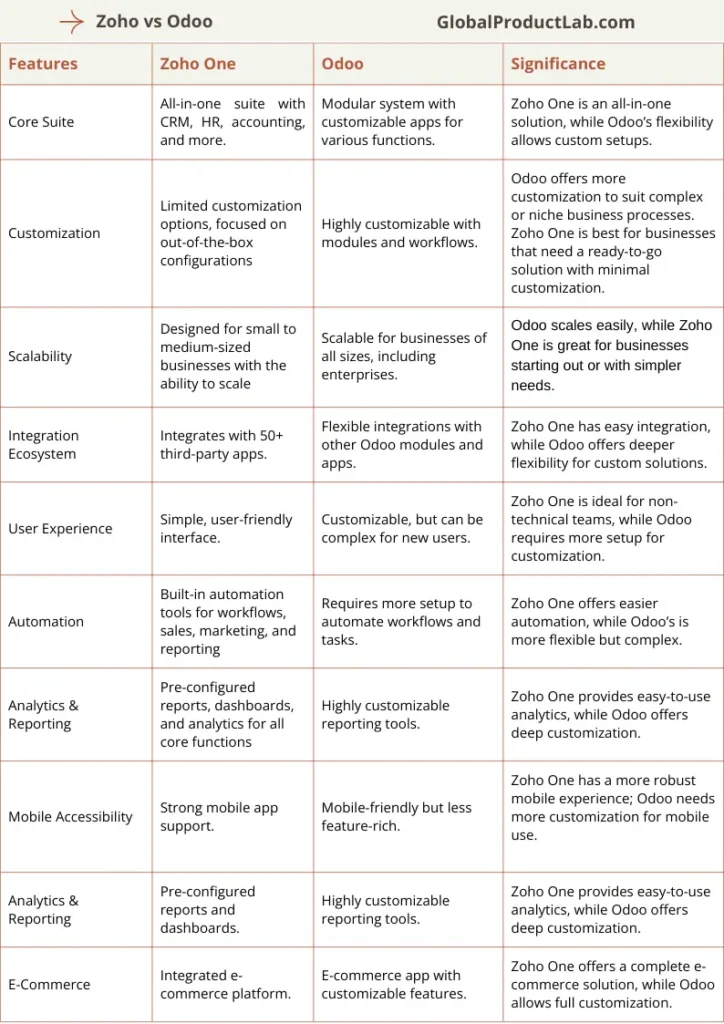
- Core Suite: Zoho One offers an all-in-one suite, covering everything from CRM and HR to project management and accounting, streamlining business operations in one platform. Odoo, on the other hand, provides a modular approach, where businesses can select and combine only the apps they need for more customization.
- Customization: Zoho One provides limited customization, focusing on quick deployments with pre-configured solutions. In contrast, Odoo excels in offering deep customization options, allowing businesses to tailor modules, workflows, and processes to their specific needs, making it ideal for complex workflows.
- Scalability: Zoho One is designed primarily for small to medium-sized businesses, offering enough flexibility to grow as the company expands. Odoo’s modular design makes it highly scalable, and suitable for businesses of all sizes, from startups to large enterprises, adapting to different needs as the business evolves.
- Integration Ecosystem: Zoho One offers seamless integration with over 50 third-party apps, enabling easy connection with widely used tools. Odoo provides flexible integration options, especially with its own modules, allowing businesses to build custom workflows and connect with various external apps, ensuring a tailored ecosystem.
- User Experience: Zoho One is known for its user-friendly, intuitive interface, making it easy for teams to adopt quickly with minimal training. Odoo, while also powerful, can feel more complex due to its customization options, requiring users to invest more time in setup and learning to fully leverage its potential.
- Automation: Zoho One comes with built-in automation tools for tasks such as lead nurturing, sales tracking, and workflow management, making it easier for businesses to automate repetitive processes. Odoo’s automation capabilities are more flexible but require a deeper setup, allowing businesses to create highly tailored automated workflows.
- Mobile Accessibility: Zoho One offers strong mobile app support for major modules like CRM, HR, and Finance, enabling teams to manage tasks on the go. Odoo’s mobile interface is more basic and less feature-rich, requiring additional customization for full mobile capabilities, making it less convenient for mobile-first teams.
- Analytics & Reporting: Zoho One comes with pre-configured dashboards and reporting tools that provide easy-to-interpret insights, making it simple for users to track performance. Odoo allows users to create highly customizable reports and analytics, offering deep insights tailored to the business’s specific needs and workflows.
- E-Commerce: Zoho One integrates a fully functional e-commerce platform, enabling businesses to easily set up online stores and manage inventory, sales, and customer data. Odoo’s e-commerce app offers greater flexibility, allowing businesses to fully customize their online stores and tie them seamlessly with the rest of the ERP system.
Zoho vs Odoo – Pros and Cons
When you compare Zoho vs Odoo, Zoho One stands out because it’s affordable. This makes it a great option for businesses with a tight budget. It’s also super easy to use. The interface is simple, and all the Zoho apps work well together.
Let’s look at the pros and cons of Zoho One:
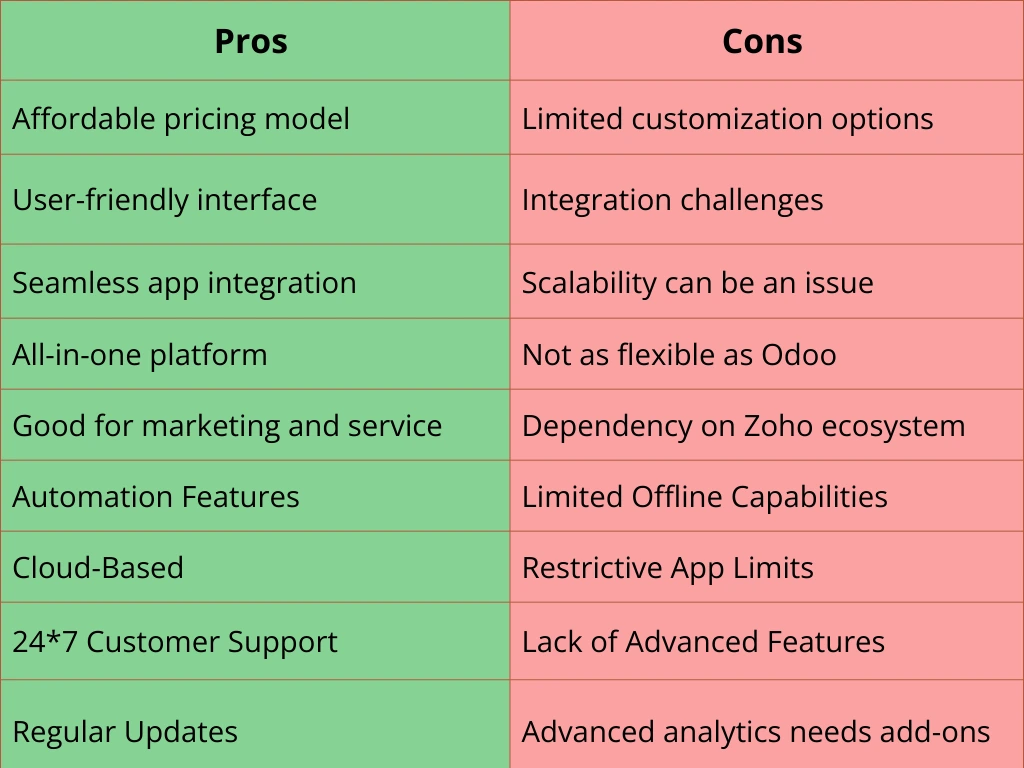
While Zoho vs Odoo highlights Odoo’s powerful features, it also has its downsides. Odoo can be more challenging to use for non-technical teams due to its steep learning curve and the technical expertise required for setup and management.
Let’s look closer at the pros and cons of Odoo.
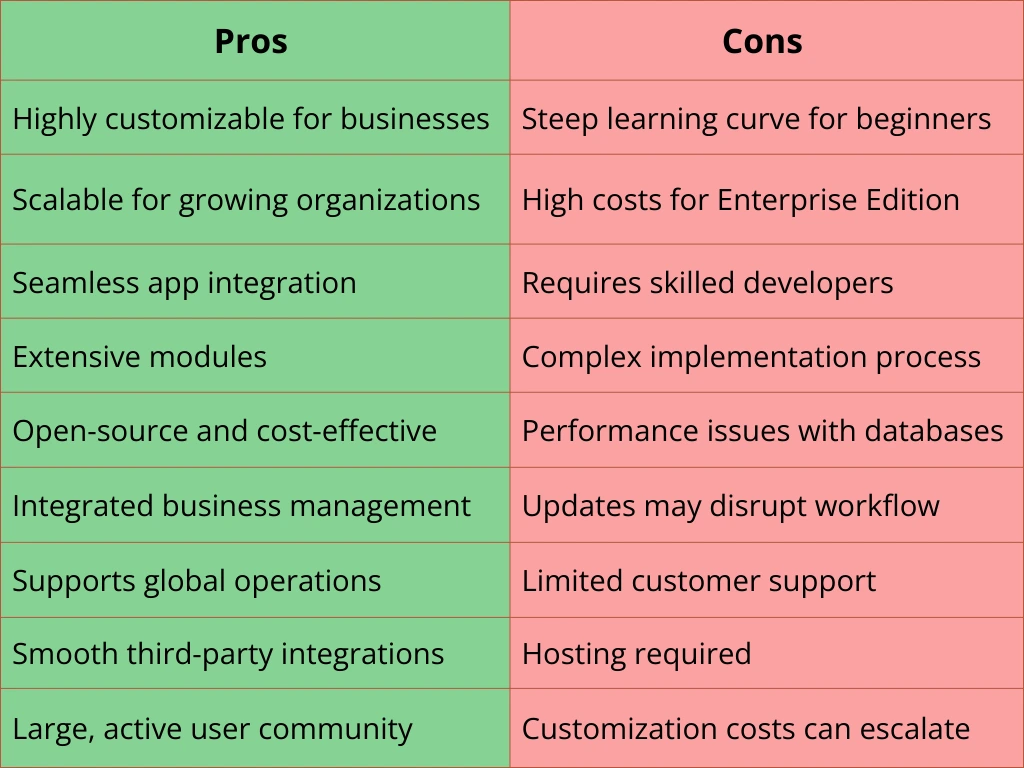
Zoho vs Odoo – Price Comparison
Zoho One offers an affordable all-in-one solution, starting at 1250 Rs per user/month, making it ideal for smaller businesses. Odoo, starting is free to use, allowing businesses to pay only for the features they need, but costs can rise with added modules and customizations.
Price of Zoho One
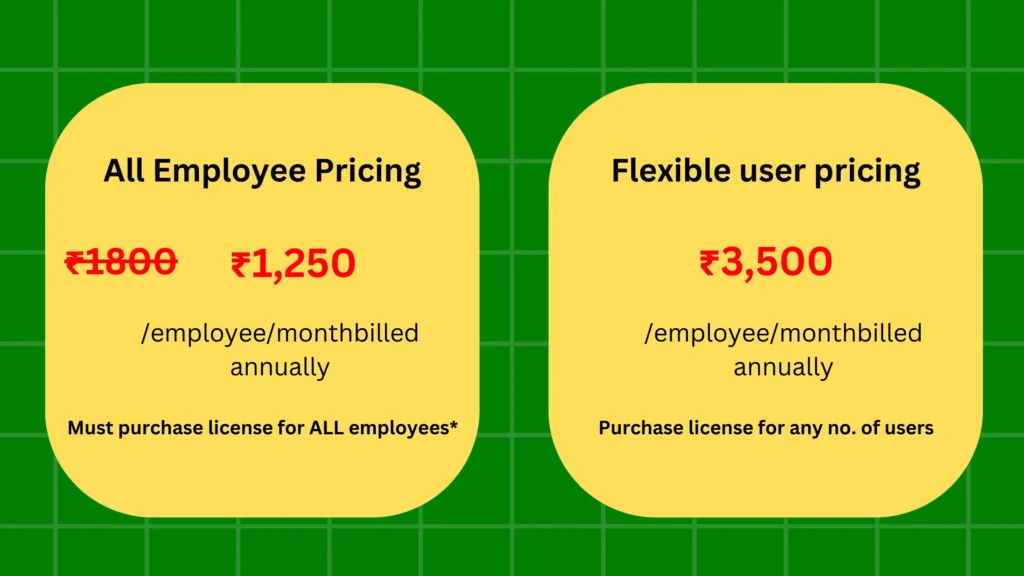
Price of Odoo
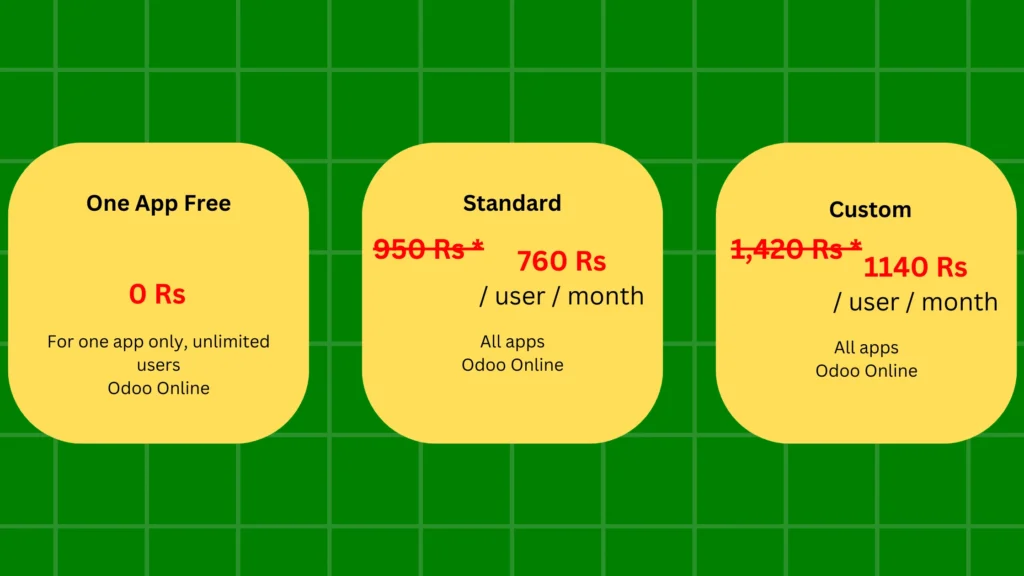
Verdict of Zoho vs Odoo – Which is the Best for Your Business
Choosing between Zoho vs Odoo depends on your business needs. Zoho One is ideal for small businesses looking for an affordable, easy-to-use, all-in-one solution with seamless integration across Zoho apps. It’s great for managing sales, marketing, and customer support.
On the other hand, Odoo is perfect for growing businesses needing high customization and scalability. Its modular system and flexibility make it suitable for industries like manufacturing and logistics. In short, go with Zoho One for a simple, budget-friendly option or Odoo if you require more customization and advanced features.